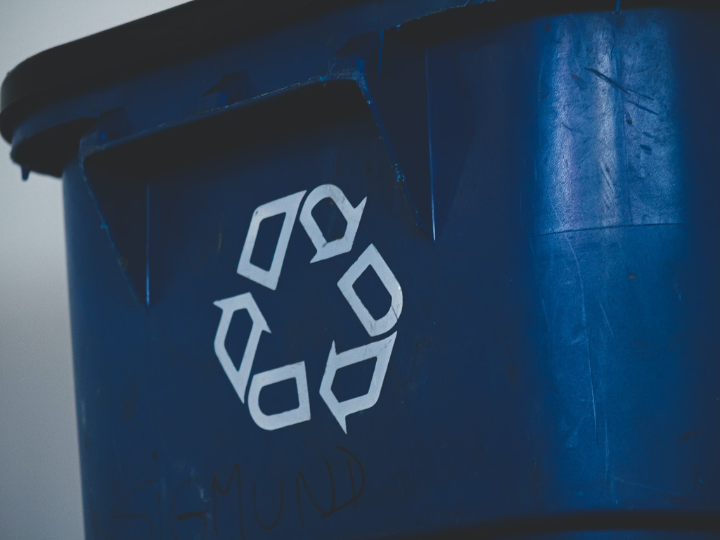by Tunc Karabayer*
To create a circular economy, it is obvious that we need innovative solutions, which are created by looking at ordinary processes from completely different viewpoints.
By blending these solutions with circular designs, we can use them in many different areas of business value chains – from supply chain to production, logistics to transportation.
Efforts to create new business models in accordance with completely circular processes, opposed to linear ones, have increased considerably in recent years. But while early-stage start-ups that prepare new business models according to circular processes try hard for this change, they have difficulty in creating enough impact.
Conversely, big corporate companies that have been working with a linear way of thinking for many years, tend to get stuck to the "limits" of linear processes in transforming all their processes and find it difficult to keep up with the change.
Both the public and private sectors are often slow to warm-up to making these kinds of changes, which is why late-stage start-ups and scale-ups are generally more suitable to making the first move, due to their agility and resilience.
As one of the 10 hubs that have been selected to the second cohort for the Scale 360? Circular Innovation programme, we know this is a challenge that we would like to rise to as the Global Shapers Ankara Hub.
We started to conduct research to monitor the opportunities and the risks in September 2021, so that we could implement our project with the most impact in Turkey.
Multistakeholder approach to circular economy
Having identified several different gaps in the business flows in Turkey’s business ecosystem, we designed a project which allowed us to get in touch with start-ups, corporate companies and government, aligning with the multistakeholder approach. Reaching out to each stakeholder helped us to increase our impact and accelerate the circular economy transition in Ankara.
Twenty two start-ups from different sectors applied to be part of our scheme and we have designed a training programme for them with our partner. Our main aims were to educate the selected start-ups about the circular economy, and guide them through the process of transforming their current business models into more circular ones.
To achieve this, we worked with Circular Economy 101 platform, which was established to increase knowledge of the individuals about the circular economy in Turkey.
First of all, we provided the start-ups with general training on main principles of circular economy and the opportunities of the circular business models. Then we conducted 1-1 workshops with each, during which we sought to understand what their main value propositions were and how those propositions could be used to fill gaps in their sectors.
However, when we deep-dived into their current key activities, we came up with some surprises. Circular business models let us dig out the “hidden value” that each start-up had but that they were not aware of, thanks to a linear way of thinking.
Basically, what the 1-1 workshop brainstorming sessions did was create an amazing space for us to look at the start-ups’ value propositions from an alternative perspective.
This circular perspective enabled us to understand that each start-up had different ‘hidden value’ which they could implement into their business models, without any requirements for a change in their business flows.
As those new circular values helped them fast-track their transition to circular business model, they also found new revenue models as well.
Bionova, which uses industrial food waste to produce value-added products for a more sustainable world, was one of the start-ups accepted to the programme. Its value proposition is to get food waste from the production processes and turn it into enzymes and bioethanol – a typical example of upcycling.
However, in our 1-1 workshop with Bionova, we found that they accidentally ignored some waste which was generated in their own production processes. With the “waste=resource” principle of the circular economy, we found several different ideas on how best to use that generated waste.
Then we moved to the next step, which was to understand the possible challenges that we might face while implementing those new value propositions into business models. Understanding those challenges showed us the importance of the collaboration.
Our solutions partners are big corporate companies and governmental institutions in Turkey that know-how about to help each start-up transition to circular business models. They can help start-ups overcome challenges, while the start-ups can provide them with new value propositions – a multistakeholder approach that offers a win-win situation.
In Bionova’s case, we linked the company with our solution partners who could help it use and recover the generated waste, thereby also creating new revenue models, as well as new resource alternatives for the other solution partners.
Circular economy transition needs collaboration
Our experience in Scale360 showed us that transition to circular economy from a very basic level is the best way to ensure a smooth process. It is obvious that no-one can become ‘circular’ on their own, and collaboration and sharing information is the key element for the innovation in this regard.
To look at things from a circular perspective, we must understand that linear perspective rooted in the whole aspects of our lives. It shapes our way of thinking which resulted in inefficient use of resources and degradation.
That is why each and every stakeholder must change their way of thinking before start to work on their circular transformation.
Innovation starts with thinking differently. To do that, it is vital to understand our negative impact and deep dive into business activities and value propositions to understand where changes can best be made.
Perhaps most importantly, we need to work together as collaboration is key to fast-tracking the transition process to a circular economy.
*Curator for 2021-22 term, Global Shapers Ankara Hub
**first published in: www.weforum.org




 By: N. Peter Kramer
By: N. Peter Kramer

